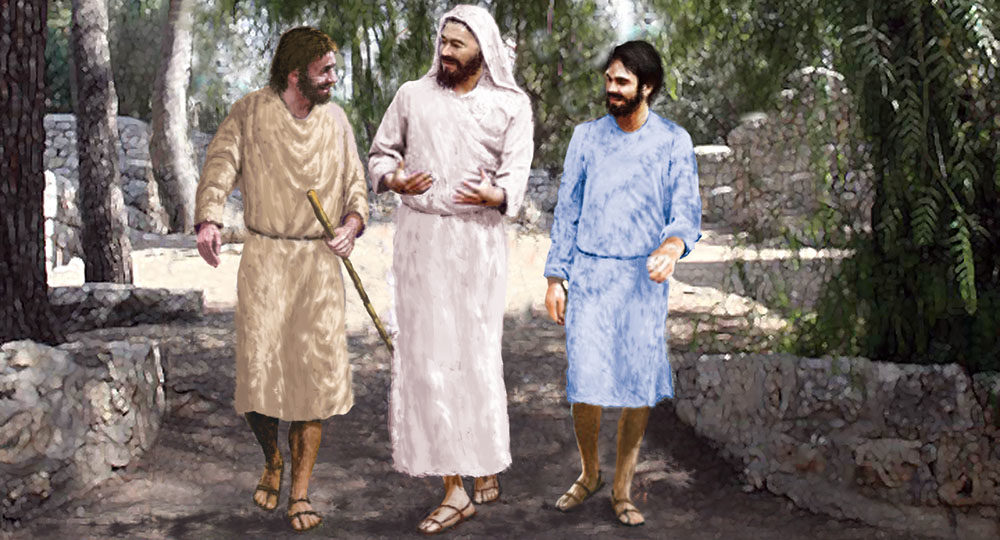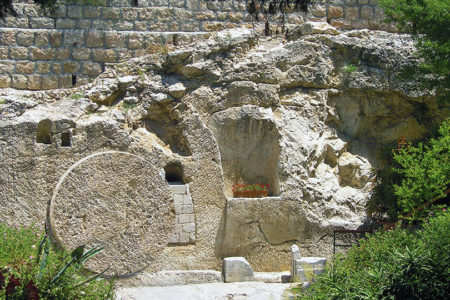The Jerusalem Road
The Romans Road is a familiar term to evangelicals. It refers to a series of verses in the New Testament book of Romans that many use to teach the gospel. Although it is efficient and effective, it is not the only way to communicate God’s plan of salvation.
Years before there was a Romans Road, Jesus presented the gospel message to two Jewish men as they walked to Emmaus from Jerusalem (Lk. 24:25–27). One was Cleopas. The other man’s name is not revealed.
The two were distraught due to the recent death of Jesus of Nazareth, the person whom they hoped would redeem Israel (vv. 17, 20–21). They had heard Jesus’ body was missing from the tomb and that a vision of angels said He was alive, but they had not seen Him for themselves (vv. 23–24).
As they walked to Emmaus, the resurrected Messiah joined them and preached a message they would never forget:
O foolish ones, and slow of heart to believe in all that the prophets have spoken! Ought not the Christ to have suffered these things and to enter into His glory?” And beginning at Moses and all the Prophets, He expounded to them in all the Scriptures the things concerning Himself (vv. 25–27).
That “Jerusalem Road” message was presented by a Jewish man to two other Jewish men about the Jewish Redeemer, using the Jewish Scriptures. Although the Gospel of Luke does not provide the specific content of the message, it gives some insight, quoting Jesus: “These are the words which I spoke to you while I was still with you, that all things must be fulfilled which were written in the Law of Moses and the Prophets and the Psalms concerning Me” (24:44).
Jesus apparently began with the Torah (Five Books of Moses) and continued from there. The men were “slow of heart to believe”(v. 25). They were looking for the Redeemer of Israel to be a mighty warrior and were blind to the reality of a Messiah who had to suffer “to enter His glory” (v. 26). The Scriptures Jesus used no doubt addressed their blindness.
He probably traced the Seed of the woman in Genesis 3:15 and continued through the raised-up Prophet of Deuteronomy 18:15, the virgin birth of Isaiah 7:14, the suffering Servant of Isaiah 53, and the reign of Jesse’s offspring in Isaiah 11. He also may have used Psalm 16:9–10: “My heart is glad, and my glory rejoices; my flesh also will rest in hope. For You will not leave my soul in Sheol, nor will You allow Your Holy One to see corruption.”
Perhaps He referred to the prophets Jeremiah and Daniel, describing the righteous Branch that would come from King David (Jer. 23:5–6) that would be “cut off, but not for Himself” before the destruction of the second Temple in A.D.70 (Dan. 9:26). I’d like to think that, just before Jesus “vanished from their sight” (Lk. 24:31), He quoted Zechariah 12:10, explaining that one day “the inhabitants of Jerusalem” will be given “the Spirit of grace and supplication,” when “they will look on Me whom they pierced.”
Whatever Hebrew Scriptures He used (there are many to choose from), the men on the road that day had quite a reaction: “Did not our heart burn within us while He talked with us on the road, and while He opened the Scriptures to us?” (Lk. 24:32).
The psalmist wrote, “Blessed are all those who put their trust in Him” (Ps. 2:12). No doubt, these two did just that.








This article is awesome but it just touches the surface. Thank you Steve. I would love to hear more on this subject.